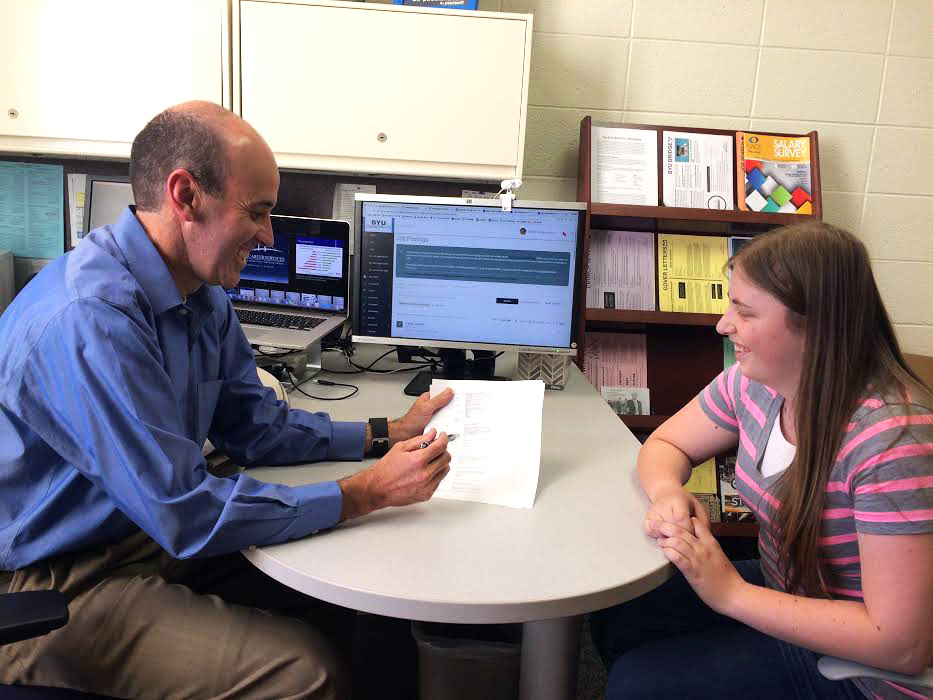
Students can find a good internship if they use the resources BYU and social media offer them, according to associate director of career services Monte Marshall.
Marshall said students may struggle in finding internships because they lack experience. Their academic internship may be the first internship they pursue. This may put them at a disadvantage against competing students who already have connections.
“What a lot of students find is they’re competing against some else’s nephew or niece,” Marshall said.
Marshall suggested students should have a two-pronged approach to finding a good internship: Building a network and applying for jobs.
Geology senior David Tomlinson spends 25 hours a weeks researching and applying for internships. He suggested students should be proactive in searching for internships.
“Companies don’t always come out to colleges. You’ve got to go look for them,” Tomlinson said.
Tomlinson has interviewed with several mining companies, including a company that will pay him $24 an hour if he works there.
Students should set aside time each week toward finding an internship, according to Marshall. He said 30 percent of the time should be dedicated to applying for internships and 70 percent should be dedicated to networking.
Marshall said an example of an effective goal he has seen students make is to apply to three internships a week and talk to two connections a day.
LinkedIn is an effective social media platform students can use to make connections, according to Marshall. He said the “Find Alumni” option is a good way for students to find BYU graduates already working at a job they would like to have.
“Students can go (on LinkedIn) and search alumni profiles and find people that have BYU in common. They’re more likely to be helpful because they went to BYU as well,” Marshall said.
Students should seek an internship that will add good experience to their resume, rather than ones that will pay the most, according to Marshall.
“That may require a sacrifice, (like) going to school is a sacrifice,” Marshall said. “(An internship) should be considered a part of your education that is going to help you reach your career outcome.”
There are several paid internships available to students, according to Marshall. He said the government is putting pressure on companies to pay their interns.
Marshall said there isn’t a way to be completely sure of the quality of experience a student will gain at an internship, but that shouldn’t stop them from doing research on companies to ensure they will gain good experience.
Second year accountancy master’s student Alex Murphy also believes students should know what they are applying for.
“A lot of people will go into something expecting it will be a super glamorous job, but then they make copies all day,” Murphy said.
Murphy interned for PricewaterhouseCoopers, an accounting firm in San Francisco. He did finance and accounting consulting for companies that wanted to go public.
Students can do research on companies by talking to people who interned there and studying the internship program online, according to Marshall. He also said students may have to accept an internship even though it may not look promising.
“I’ve always said an internship is better than no internship,” Marshall said.
Marshall also said students should use BYU Bridge, BYU’s platform for internship and full-time job postings, to find a good internship.
“I consider BYU Bridge the low-hanging fruit, because if somebody has taken time to post on BYU Bridge, they’re probably interested in a BYU student,” Marshall said.
BYU Bridge has contact information for employers, so students can contact employers through BYU Bridge.
Marshall also encourages students to visit with mentors at Career Services.
“We have people who can help with simple things like looking over a resume or practicing an interview with you or more complex things like how to use LinkedIn or how to network with a company on the other side of the country,” Marshall said.




